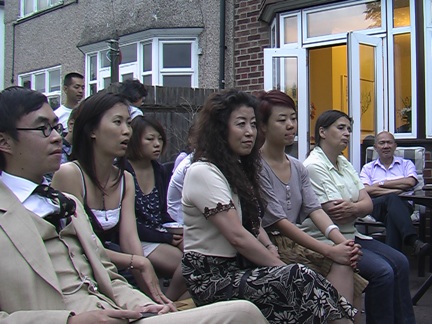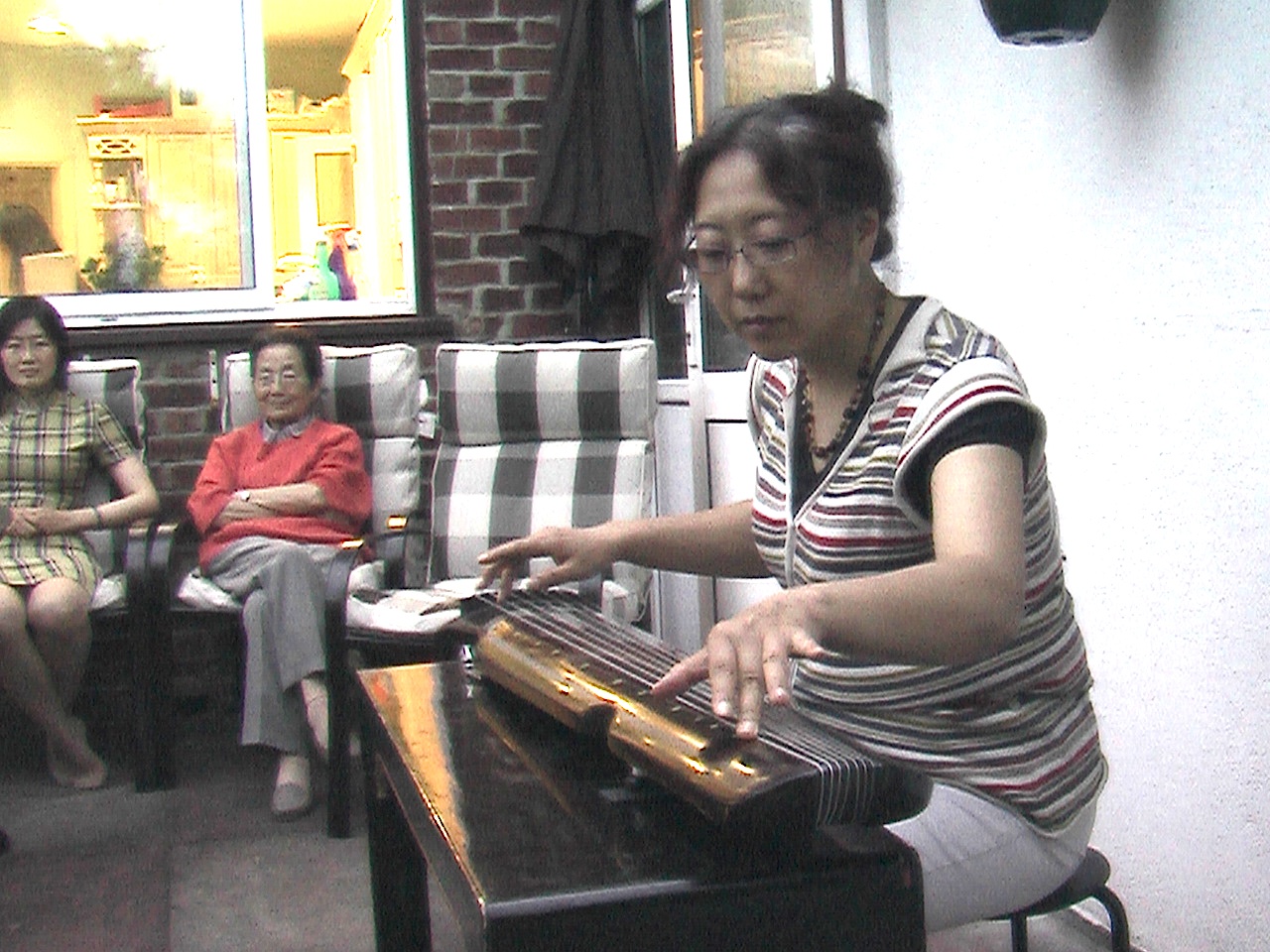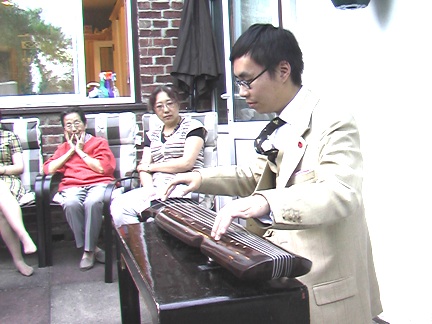 25th
July, 2010
25th
July, 2010 25th
July, 2010
25th
July, 2010
|
 |
|
| Dai Xiaolian gave a short talk
about the Yushan School of qin music. |
Dai
Xiaolian playing Bi Jian Liu Quan |
Charlie
Huang playing Qiu Shui |
Copyright the London Youlan Qin Society, 2010. All
rights reserved.